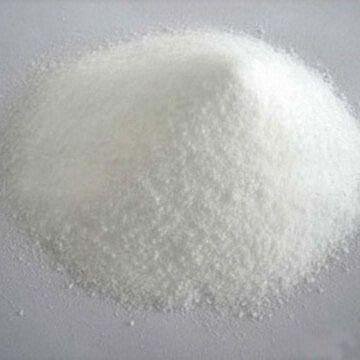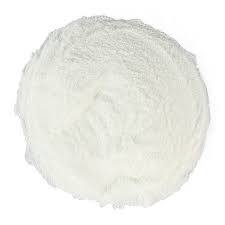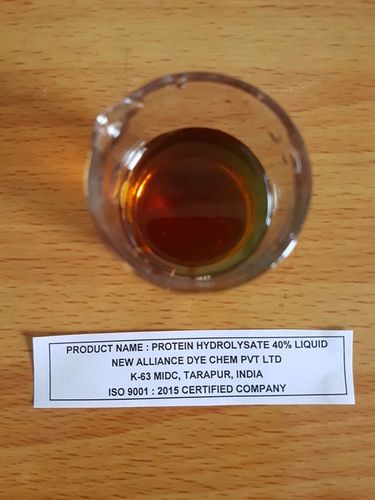GROWTH THROUGH INNOVATION...
Working hours:
Monday to Friday - 9.30 to 6.00 Saturday - 9.30 to 4.00
Calcium Propionate
125.00 INR/Kilograms
Product Details:
- Water Solubility Soluble in water.
- Physical Form Powder
- Appearance White crystalline powder
- Color White
- Storage Room Temperature
- Click to view more
X
Calcium Propionate Price And Quantity
- 25 Kilograms
- 125.00 INR/Kilograms
Calcium Propionate Product Specifications
- White
- Soluble in water.
- Powder
- Room Temperature
- White crystalline powder
Calcium Propionate Trade Information
- NHAVASHEVA
- 1000 Kilograms Per Month
- 1 Week
- Yes
- Free samples are available
- 25 KG
- All India
- ISO 9001:2015 ISO 22000 FSSAI
Product Description
Calcium Propionate is produced by Propionic Acid and Calcium Hydroxide. It is inhibit mold and it is observed that 2% of this chemical added in bread showed no visible molds for over 8 days in both wraped or unwrapped condition at room temperature. So in this way it increased shelf life of backery foods. In breads and rolls the common usage level for calcium propionate is between 0.3% - 0.5%. per hundred weight of flour.
Calcium Propionate is a preservative, mainly used in bread and other baked goods. It is helpful in retaining the freshness of the baked goods by preventing the growth of bacterial and mold.
Calcium Propionate Specifications:
FAQ:
Q. What is calcium propionate?
Ans: This chemical is a calcium salt of propionic acid. Its a synthetic compound used as a preservative to extend the shelf life of various food products.
Q. Why is calcium propionate used in food?
Ans: It is used to inhibit the growth of mold and some bacteria in baked goods and other food items. It helps prevent spoilage and extends the products freshness.
Q. In which foods is calcium propionate commonly found?
Ans: This chemical is often used in bread and other baked goods like pastries, tortillas, and bagels. Its also used in processed cheeses, some dairy products, and other items where mold growth is a concern.
Q. Is calcium propionate safe to consume?
Ans: It is generally recognized as safe (GRAS) by the U.S. Food and Drug Administration (FDA) when used in accordance with approved levels. It is considered safe for consumption in the quantities typically used in food products.
Q. Are there any potential health concerns associated with calcium propionate?
Ans: While calcium propionate is generally considered safe, some individuals may be sensitive or allergic to it. In rare cases, consumption may lead to mild allergic reactions or digestive issues. However, these instances are not common.
Q. Does calcium propionate have any nutritional value?
Ans: This chemical does not provide any significant nutritional value, and it is used solely as a preservative.
Q. Can calcium propionate be used in organic foods?
Ans: The use of this product in organic foods is subject to regulation and may not be allowed in all organic products. Organic standards vary by region, so its essential to check with the appropriate certification agency.
Q. How is calcium propionate added to food?
Ans: This chemical product is typically added directly to the food product during the manufacturing process. It can be incorporated into the dough or batter for baked goods or mixed into other food items as needed.
Q. Is calcium propionate vegan or vegetarian?
Ans: This chemical product is generally considered vegan and vegetarian because it is a synthetic compound that does not contain animal-derived ingredients.
Q. Are there alternative preservatives to calcium propionate?
Ans: Yes, there are other preservatives used in food products, depending on the specific requirements. Some alternatives include sorbic acid, potassium sorbate, and various natural preservatives like rosemary extract.
Outstanding Shelf Life Extension
Calcium Propionate effectively prolongs the freshness of bakery foods, significantly reducing spoilage by slowing mold and bacterial growth. Its application helps decrease waste and maintains product quality from production to consumption. Used at recommended levels, it ensures baked goods remain safe and appetizing during storage and distribution.
Food Grade Quality That Meets International Standards
Produced in India under strict quality controls, this calcium propionate features an impressive 99% purity with a maximum heavy metal content of 10 PPM. The product meets Food Grade requirements and is recognized globally, as indicated by its HS Code: 29 and CAS No: 4075-81-4. Adhering to these standards ensures safety and consistent performance in food applications.
Easy to Handle and Integrate
Presented as a white crystalline powder, calcium propionate dissolves efficiently in water, making it straightforward to incorporate into bakery mixes. It has no noticeable odor and does not alter the taste or color of end products. For optimum performance, simply blend the appropriate amount with flour or other dry ingredients.
FAQs of Calcium Propionate:
Q: How does calcium propionate help increase the shelf life of bakery products?
A: Calcium propionate inhibits the growth of molds and certain bacteria in bakery products such as bread and rolls, preventing spoilage and extending freshness. This ensures products remain safe and consumable for longer periods.Q: What is the recommended usage level of calcium propionate in breads and rolls?
A: The usual application rate is between 0.3% and 0.5% per hundredweight of flour. This range effectively preserves freshness without affecting taste or product quality.Q: When should calcium propionate be added during the baking process?
A: Calcium propionate should be blended with flour or other dry ingredients before adding liquid components. This guarantees even distribution and maximum efficacy in preventing mold growth.Q: Where is this food grade calcium propionate manufactured?
A: This product is manufactured and exported from India, adhering to international quality standards for food additives.Q: What are the key benefits of using calcium propionate in food production?
A: The primary benefits include enhanced shelf life, reduced food waste, improved product safety, and preservation of the original taste, color, and texture of baked goods.Q: How should calcium propionate be stored for best results?
A: Keep the product in a dry place at room temperature, away from moisture. Proper storage ensures the preservative maintains its effectiveness and integrity.Tell us about your requirement

Price:
Quantity
Select Unit
- 50
- 100
- 200
- 250
- 500
- 1000+
Additional detail
Mobile number
Email
 English
English Spanish
Spanish French
French German
German Italian
Italian Chinese (Simplified)
Chinese (Simplified) Japanese
Japanese Korean
Korean Arabic
Arabic Portuguese
Portuguese







